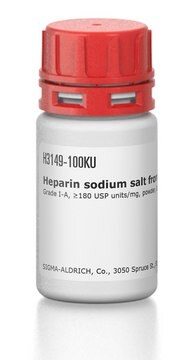Wichtige Dokumente
V900144
Glycin
98%, Vetec™
Synonym(e):
Aminoessigsäure, Aminoethansäure, Glycokoll
About This Item
Empfohlene Produkte
Produktbezeichnung
Glycin, Vetec™, reagent grade, 98%
Qualität
reagent grade
Produktlinie
Vetec™
Assay
98%
Form
powder
Methode(n)
cell culture | plant: suitable
Farbe
white to off-white
pH-Wert
5.9-6.4 (20 °C, 50 g/L)
pKa (25 °C)
(1) 2.35, (2) 9.60
2.35
mp (Schmelzpunkt)
240 °C (dec.) (lit.)
SMILES String
NCC(O)=O
InChI
1S/C2H5NO2/c3-1-2(4)5/h1,3H2,(H,4,5)
InChIKey
DHMQDGOQFOQNFH-UHFFFAOYSA-N
Suchen Sie nach ähnlichen Produkten? Aufrufen Leitfaden zum Produktvergleich
Biochem./physiol. Wirkung
Rechtliche Hinweise
Lagerklassenschlüssel
13 - Non Combustible Solids
WGK
WGK 1
Hier finden Sie alle aktuellen Versionen:
Besitzen Sie dieses Produkt bereits?
In der Dokumentenbibliothek finden Sie die Dokumentation zu den Produkten, die Sie kürzlich erworben haben.
Unser Team von Wissenschaftlern verfügt über Erfahrung in allen Forschungsbereichen einschließlich Life Science, Materialwissenschaften, chemischer Synthese, Chromatographie, Analytik und vielen mehr..
Setzen Sie sich mit dem technischen Dienst in Verbindung.







